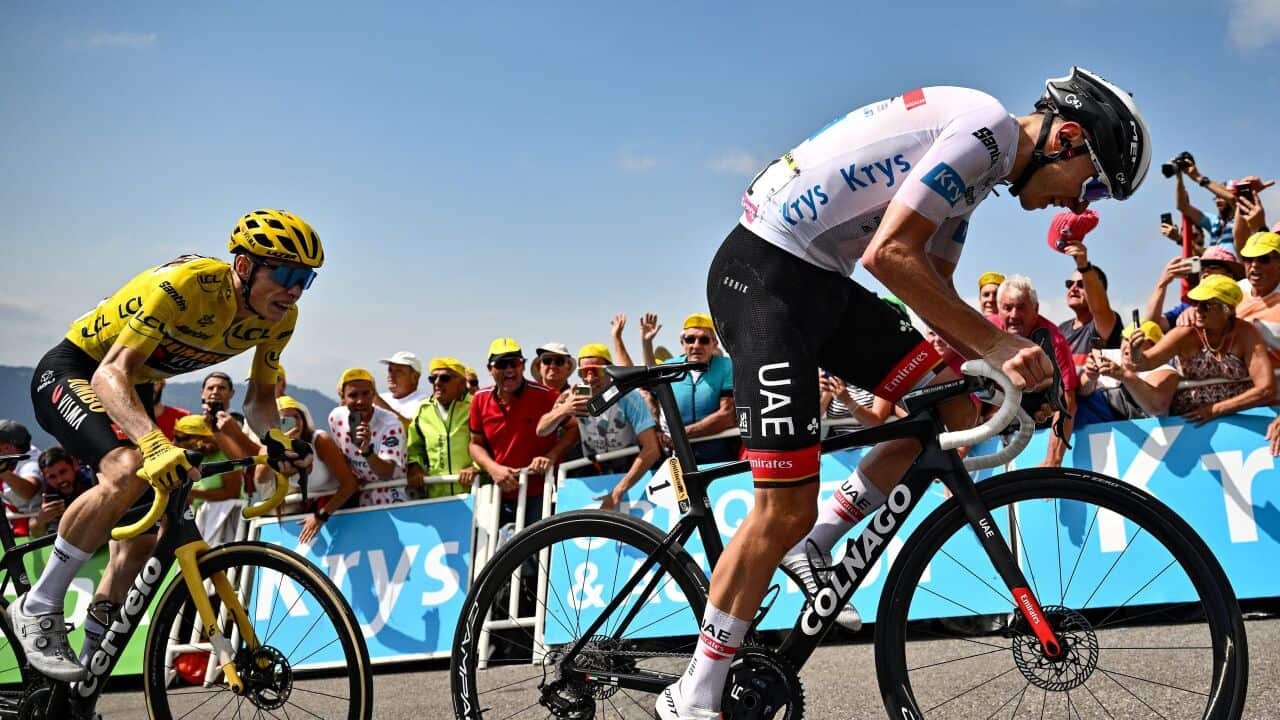When you follow professional cycling quite closely you start to notice that certain teams are the ones doing the attacking and others are doing the defending. Proactive versus reactive.
I was wondering how that worked out over the course of a Tour de France. Is it better to be aggressive or wait and judge your efforts in function of what is happening each day?
Up until the stumble of Tadej Pogacar on the Col du Granon, it definitely looked like his tactics of taking time when he could, whether it was bonus or splits occurring in uphill sprints, was the way to go.
However, his reactions to the attacks of Jumbo-Visma on the Galibier proved to be his downfall and Jonas Vingegaard pounced and took over the race lead. Before that decisive moment the Dane had been riding a much more defensive strategy. One which looked to be too conservative to challenge the UAE leader.
That Jumbo-Visma had come to the Tour with the aims of securing both the Yellow and Green jerseys seemed very optimistic against the more focused ambition of Pogacar but now the race is firmly in the control of Vingegaard and especially with an impressive Van Aert it seems the ‘observe and pounce’ tactics are the way to go.
If that’s the case then why doesn’t every team do that? There’s no simple answer because it depends on a number of things. Starting with budget, the top teams can secure the best riders for each role.
If you have a Wout Van Aert who can sprint, time trial and out-perform most of the rival GC contenders in the mountains then all tactical options become available. However, you’ll still have the characteristics of the team leader to respect and for Jonas Vingegaard that tends to be slightly on the defensive.
Then you need riders with the right attitude, that fit into the collective idea that the team has. Quickstep, though not having a great Tour by their own standards, are the perfect example. One for all, all for one and adaptable, which again the best riders tend to be. They can step up into another role on a temporary basis. Jumbo have that covered and then there’s confidence and a long term plan that develops each year. This last point is a hard one for those teams scrabbling to survive every winter.
In the other camp, Pogacar has more exuberance and though he won his previous Tours by riding defensively and then making the difference on basically one day this 2022 edition has seen him move to proactive, more entertaining and using a lot more energy. If he had a more supportive squad behind him, less affected by falls and sickness, he might not have had to do that.
Geraint Thomas hasn’t much choice but to ride to his consistent pace, INEOS have set up to do that with Adam Yates not being an attacker either. Dani Martinez, the other GC rider, hasn’t performed to expectation and they’ve looked disjointed too often. Third is a result for the British squad.
Groupama-FDJ is a proactive squad but with Gaudu a reactive racer and Pinot mainly absent, they have tried to provoke but they aren’t strong enough.
Bardet and DSM, naturally proactive but inconsistent. Quintana is the opposite and his lack of support showed in his gradual drop off from the GC fight.
The surprise is Louis Meintjes of Intermarche, always the guy chasing to rectify situations in the past, who went rogue and became an attacker. It’s worked in his circumstances because all the rival GC riders never committed to anything.
Enric Mas has been the perfect example of the reactive guy that can’t do that change of role. His Movistar team have tried, but it doesn’t work without a finisher like Valverde.
Alexey Lutsenko is - or rather would have been - proactive if he had the form though Astana are a work in progress and who wants to go there is their problem.
When you get into the teams chasing the mountain classification then it becomes difficult for them to be rewarded for being proactive because that jersey is over influenced by hors category finishes. EF Education-Easypost and Cofidis can try all they want but they’re busted by the GC contenders when they want to compete for the overall victory.
Summing up, it looks best to be reactive if you’re racing for GC. Pogacar might disagree (and he could be right) but he needs to ride a perfect race. Recruitment is everything and it’s also constantly keeping a strong core set of riders.
All the smaller budget teams have little choice but to be on the attack, with riders like Simon Clarke, Hugo Houle and Meintjes it works out sometimes, but it can be frustrating.
Watch the FIFA World Cup 2026™, Tour de France, Tour de France Femmes, Giro d’Italia, Vuelta a España, Dakar Rally, World Athletics / ISU Championships (and more) via SBS On Demand – your free live streaming and catch-up service. Read more about Sport
Have a story or comment? Contact Us

